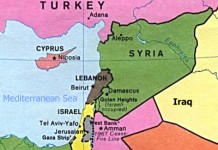Context
 Up to 6 gunmen attacked the heavily guarded PNS Mehran Base close to Shahrah-e-Faisal in Karachi on Sunday night, killing 13 persons, wounding 16 others and destroying at least two navy P-3C Orion maritime patrol aircrafts. The dead included one Ranger and 11 navy servicemen, while 16 foreigners from US and China were rescued safely. Pakistani navy announced it took back control of the base Monday afternoon after it was occupied by attackers for over 15 hours. Pakistan’s Interior Minister Rehman Malik said that four attackers had been killed while the other two managed to flee. The Pakistan Taliban (TTP) have claimed responsibility for the attack, saying it was to avenge the death of Bin Laden on May 2nd.
Up to 6 gunmen attacked the heavily guarded PNS Mehran Base close to Shahrah-e-Faisal in Karachi on Sunday night, killing 13 persons, wounding 16 others and destroying at least two navy P-3C Orion maritime patrol aircrafts. The dead included one Ranger and 11 navy servicemen, while 16 foreigners from US and China were rescued safely. Pakistani navy announced it took back control of the base Monday afternoon after it was occupied by attackers for over 15 hours. Pakistan’s Interior Minister Rehman Malik said that four attackers had been killed while the other two managed to flee. The Pakistan Taliban (TTP) have claimed responsibility for the attack, saying it was to avenge the death of Bin Laden on May 2nd.
The attacks on Mehran Base followed a similar incident in Afghanistan on Sunday. Militants wearing suicide jackets stormed an Afghan government compound, sparking a gun battle with security officials that lasted for over 4 hours, according to officials. At least three policemen were killed in the attack that took place near the eastern city of Khost. The Taliban took responsibility for this attack.
Taliban appear to be coordinating their attacks in both Afghanistan and Pakistan. While previously concerns were raised regarding the training of Afghan Security Forces to tackle the challenges it confronts, similar questions are now being asked about the preparedness of Pakistan’s security apparatus. The recent release of secret documents by WikiLeaks have negated the information Pakistan Army had previously shared with public on the drone attacks and the involvement of US Special Forces in conducting operations in Pakistan. These incidents are creating doubts in the minds of Pakistan’s public about the perceived steadfastness of its military.



